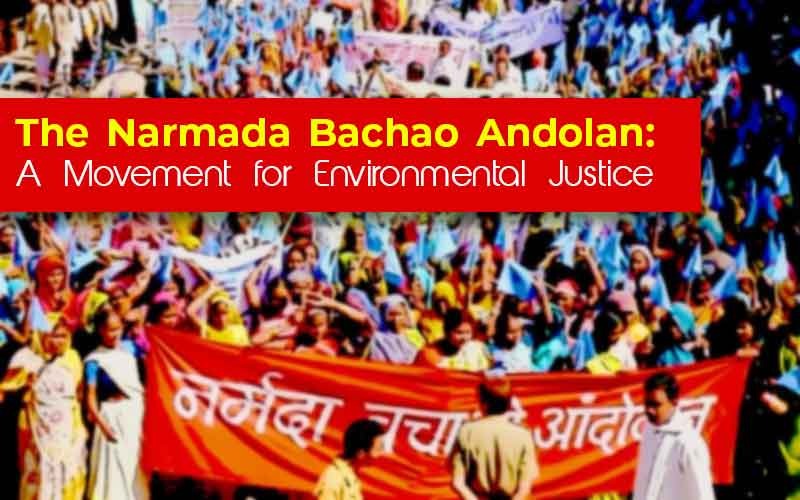
The Narmada BachaoAndolan: A Movement for Environmental Justice and Human Rights
The Narmada
BachaoAndolan (NBA) is a social movement that emerged in the early 1980s in
India, with the aim of preventing the construction of large dams on the Narmada
River, which flows through the states of Madhya Pradesh, Gujarat, and
Maharashtra. The movement is led by local communities, environmental activists,
and human rights advocates who are concerned about the negative impact of the
dams on the environment, the economy, and the livelihoods of the local people.
The NBA was
founded in 1985 by a group of activists, including MedhaPatkar, who had been
working on issues related to the Narmada River for several years. The movement
gained momentum in the 1990s when the Indian government announced plans to
build a series of large dams on the river as part of the Narmada Valley Development
Project (NVDP). The project aimed to provide irrigation water, electricity, and
flood control to the region, but it would also displace millions of people and
cause irreversible damage to the environment.
The NBA
protested against the project, arguing that it would displace tens of thousands
of people, destroy the forests and the river ecosystem, and violate the rights
of the indigenous people and other marginalized communities. The movement
called for a more participatory and sustainable approach to development, which
would respect the rights and needs of the local people, protect the
environment, and promote social justice.
The NBA
launched a series of peaceful protests, rallies, and hunger strikes to draw
attention to the plight of the displaced people and to pressure the government
to reconsider its plans. The movement also engaged in legal battles,
challenging the legality of the project and the violations of human rights and
environmental laws.
The NBA's
efforts gained national and international attention, and it became a symbol of
resistance against the dominant development paradigm that prioritized economic
growth over social and environmental concerns. The movement inspired a number
of similar protests against large dams and other development projects across
India and other parts of the world.
Despite the
protests and legal challenges, the Indian government continued to pursue the
project, arguing that it was necessary for the country's development. The
construction of the dams led to the displacement of thousands of people and
caused irreparable damage to the environment and the river ecosystem. The NBA's
efforts, however, led to some modifications in the project, such as the
resettlement of the displaced people, the reduction in the height of the dams,
and the implementation of environmental and social safeguards.
The NBA
remains active today, and it continues to advocate for the rights of displaced
people, the protection of the environment, and the promotion of sustainable
development. The movement has also been involved in other issues, such as the
protection of forests, the conservation of natural resources, and the promotion
of social justice and human rights.
In
conclusion, the Narmada BachaoAndolan is a social movement that emerged in India
in the early 1980s, with the aim of preventing the construction of large dams
on the Narmada River. The movement protested against the displacement of the
local people, the destruction of the environment, and the violation of human
rights and environmental laws. Despite some modifications in the project, the
construction of the dams led to significant damage to the environment and the
river ecosystem. The NBA remains active today, and it continues to advocate for
the rights of displaced people, the protection of the environment, and the
promotion of sustainable development.
Disclaimer: The opinions expressed in this article are those of the author's. They do not purport to reflect the opinions or views of The Critical Script or its editor.

Newsletter!!!
Subscribe to our weekly Newsletter and stay tuned.

















Related Comments